In the fast-paced world of pickleball doubles, effective communication isn’t just helpful—it’s essential. As players dart across the court, a single miscommunication can turn the tide of the game. That’s why mastering the art of teamwork and dialogue is as crucial as perfecting a serve or a slam.
But let’s face it, improving team communication is easier said than done. It’s about more than just calling shots; it’s about building a rapport and understanding that allows teammates to anticipate each other’s moves and support each other under pressure. Whether you’re new to the sport or looking to elevate your game, enhancing communication can transform your doubles play from good to unbeatable.
The Importance of Team Communication in Pickleball Doubles
In pickleball doubles, the synergy between teammates can significantly influence the outcome of the game. Communication serves as the backbone of this partnership, enabling players to strategize effectively and adapt to the dynamic nature of the match. Without clear and constant communication, teams may find themselves struggling against opponents who are in sync with each other.
Effective team communication in pickleball doubles encompasses more than just calling shots or indicating who will take the ball. It involves sharing observations about opponents’ weaknesses, devising game plans during breaks, and providing positive reinforcement to maintain morale. This ongoing dialogue helps in building a robust understanding and trust between partners, which is essential for executing strategies seamlessly.
Why is Team Communication Vital?
- Strategic Planning: Before and during the game, partners discuss strategies based on their observations of the opponents’ gameplay and adjust their tactics accordingly.
- Coordination: Clear calls and signals help avoid collisions and ensure that the team covers the court efficiently without leaving any gaps.
- Boosting Morale: Words of encouragement and acknowledgment of good plays reinforce confidence and team spirit.
Challenges in team communication often stem from differences in playing styles or personalities. However, these can be overcome through practice and by spending time together off the court. Learning each other’s tendencies and preferences goes a long way in developing an intuitive understanding, where sometimes a simple look can convey a whole strategy.
- Pre-game Discussion: Spend a few minutes before each game to discuss strategies and set goals based on both the team’s strengths and the perceived weaknesses of the opponents.
- Use Clear Signals: Develop simple hand signals for quick and silent communication during play to indicate who is taking the shot or to make strategic adjustments.
- Post-game Analysis: Review the game together, focusing on what worked well and what could be improved. This reflection is crucial for continuous improvement and for reinforcing strategies that yield success.
Incorporating these communication practices into the team’s routine can drastically enhance the dynamics of a pickleball doubles team. It’s not just about talking more but about talking smart. By focusing on quality communication, players ensure they’re always a step ahead, anticipating each other’s moves and supporting one another throughout the game.
As teams cultivate these communication skills, they become more adept at reading the game and each other. This synergy allows for smoother gameplay, making it challenging for opponents to predict and counter their strategies.
Understanding the Challenges of Communication in Pickleball Doubles
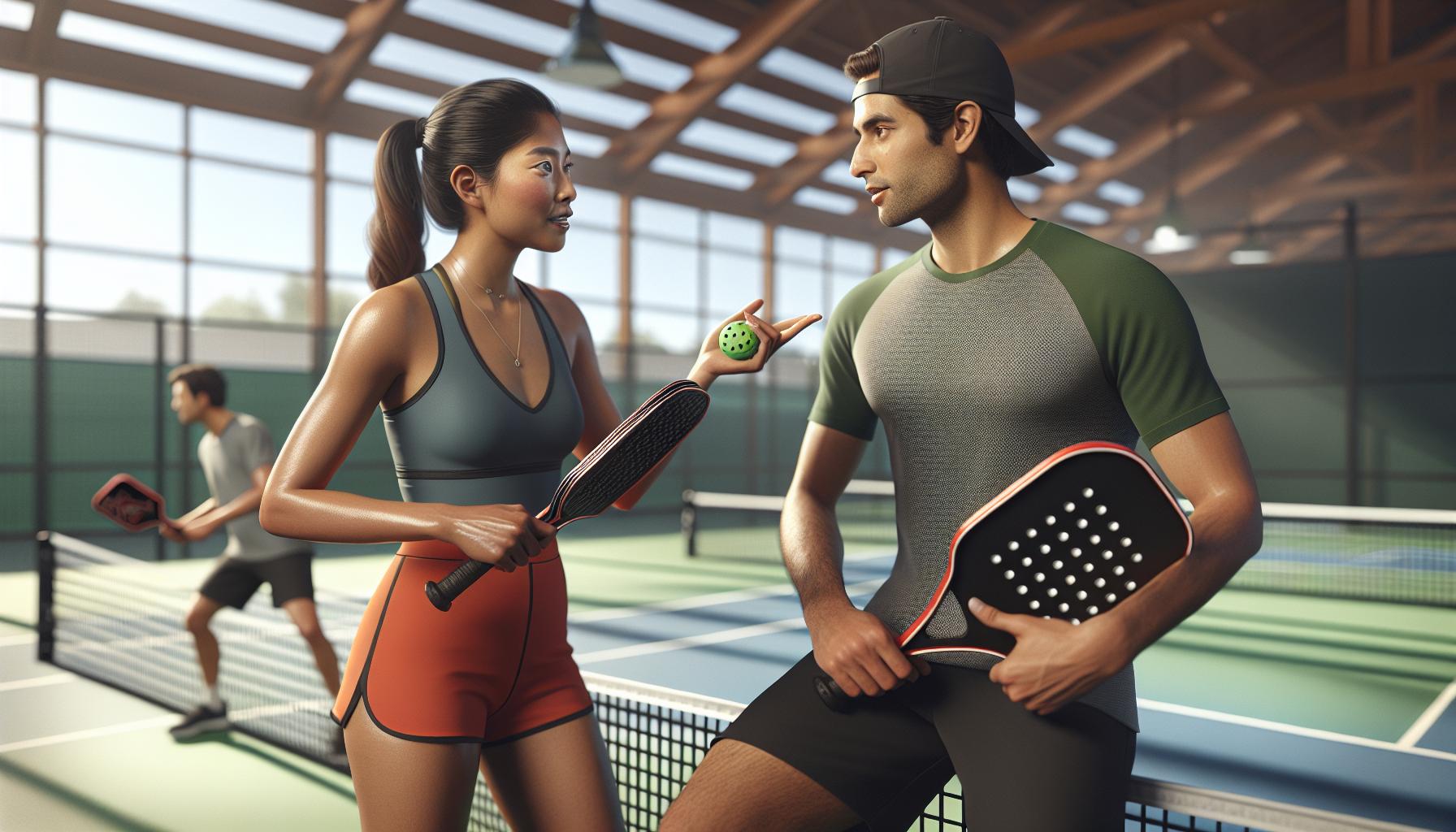
Communication in pickleball doubles presents unique challenges that teams must navigate to play effectively. Unlike individual sports, doubles require players to continuously interact, not just with opponents but with each other. This constant need for communication can sometimes be as demanding as the physical aspects of the game.
One primary challenge is the noise and distractions found in typical pickleball environments. Courts are often close together, and the sounds from adjacent games can confuse signals between partners. This noise pollution makes verbal communication difficult, requiring players to rely heavily on non-verbal cues, which might not always be as clear or as instinctive, especially for teams that haven’t developed a deep rapport.
Another significant issue is the variation in communication styles and preferences between teammates. Every player has their unique way of communicating, both verbally and non-verbally. Some may prefer short, direct calls during gameplay, while others might use more elaborative gestures to convey their intended message. Aligning these different styles is crucial for ensuring that messages aren’t just sent but are received and understood as intended.
Physical limitations also pose a direct challenge. In the heat of a game, physical stamina and focus can wane, making it harder to communicate effectively. Fatigue can lead to reduced alertness, slower reactions to partners’ signals, and a decreased capacity to send clear messages. This is particularly significant in fast-paced, high-pressure situations where quick and clear communication is crucial.
To add to these challenges, there’s the psychological aspect of pressure and stress. Competitive environments can affect a player’s mental state, leading to overthinking or, alternatively, a lack of concentration. This mental pressure can significantly impede a team’s communication flow, leading to mistakes that might not occur in a less stressful setting.
Understanding the barriers to effective communication is the first step in overcoming them. Teams can look into strategies such as establishing pre-game communication rituals, using universally understood signals during games, and holding post-game discussions to reflect on communication effectiveness. By acknowledging and addressing these challenges, teams can enhance their coordination and cooperation, leading to improved performance on the court.
While the challenges of communication in pickleball doubles are multifaceted, they are not insurmountable. With the right approach and a bit of practice, teams can turn potential communication pitfalls into their strengths, giving them a competitive edge.
Building Rapport with Your Doubles Partner
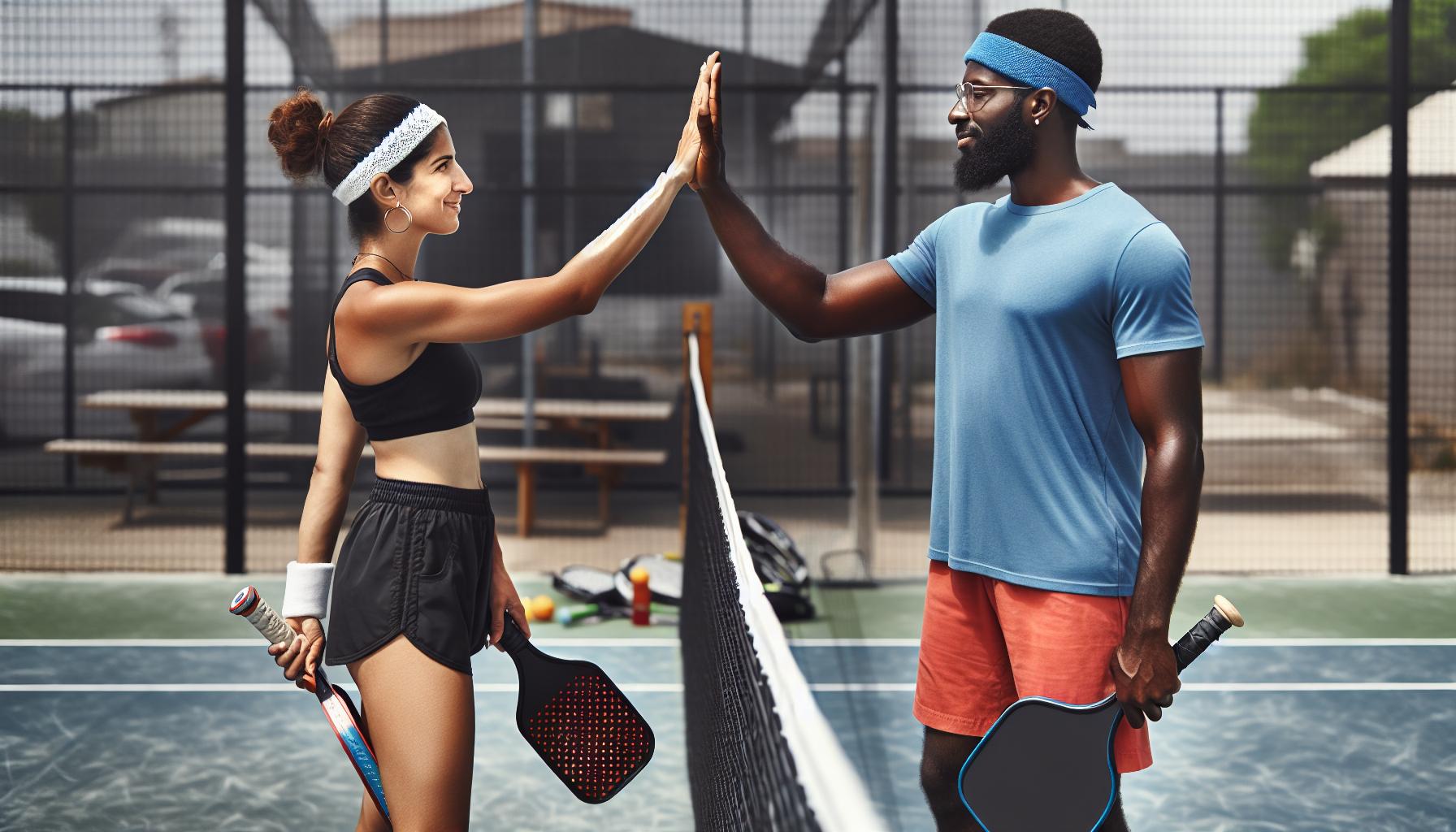
Building a strong rapport with your doubles partner in pickleball is not just about enhancing your gameplay, but it’s also about creating a relationship where both players feel comfortable and confident in their ability to work as a unit. Communication is the key to unlocking this level of understanding and coordination.
Start with the Basics
Initiating open and honest conversations about strengths, weaknesses, and personal game strategies is foundational. This initial step helps in setting realistic expectations and objectives. Additionally, discussing individual preferences for various types of shots and plays ensures that both partners are on the same page when it comes to game-day decisions. Sharing these insights lays the groundwork for effective in-game communication and strategizing.
Practice Makes Perfect
Just as important as talking about the game is practicing together. Repetitive practice sessions allow partners to observe each other’s game styles closely, adapt to each other’s movements, and fine-tune their teamwork. This hands-on approach enables both players to:
- Understand each other’s non-verbal cues
- Anticipate the partner’s next move
- Develop a rhythm that complements both their strengths
Scheduling regular practice sessions not only improves physical gameplay but also reinforces the bond between partners, making their communication more intuitive during matches.
Embrace Pre-Game Rituals
Establishing pre-game rituals can significantly boost team morale and cohesion. Whether it’s a specific warm-up routine, a motivational talk, or a simple handshake, these rituals can serve as a catalyst for building a deeper connection. They function as a physical reminder of the partnership’s goals and mutual support system, setting a positive tone for the game ahead.
Handle Mistakes with Grace
Mistakes are inevitable in any sport, including pickleball. How partners respond to these mistakes can either strengthen or weaken their rapport. It’s crucial that both individuals approach errors with a constructive mindset, focusing on encouragement and constructive feedback rather than criticism. Acknowledging that errors are part of the learning process helps in maintaining a supportive atmosphere, essential for building trust and understanding.
Celebrate Success Together
Just as it’s important to handle mistakes with grace, celebrating successes, no matter how small, plays a significant role in strengthening the partnership. These celebrations foster a sense of shared achievement and motivate both players to continue improving. Highlighting the efforts of each partner and recognizing their contributions to the team’s success reinforces the value of their partnership and boosts their morale.
Effective Strategies for Clear Communication on the Court
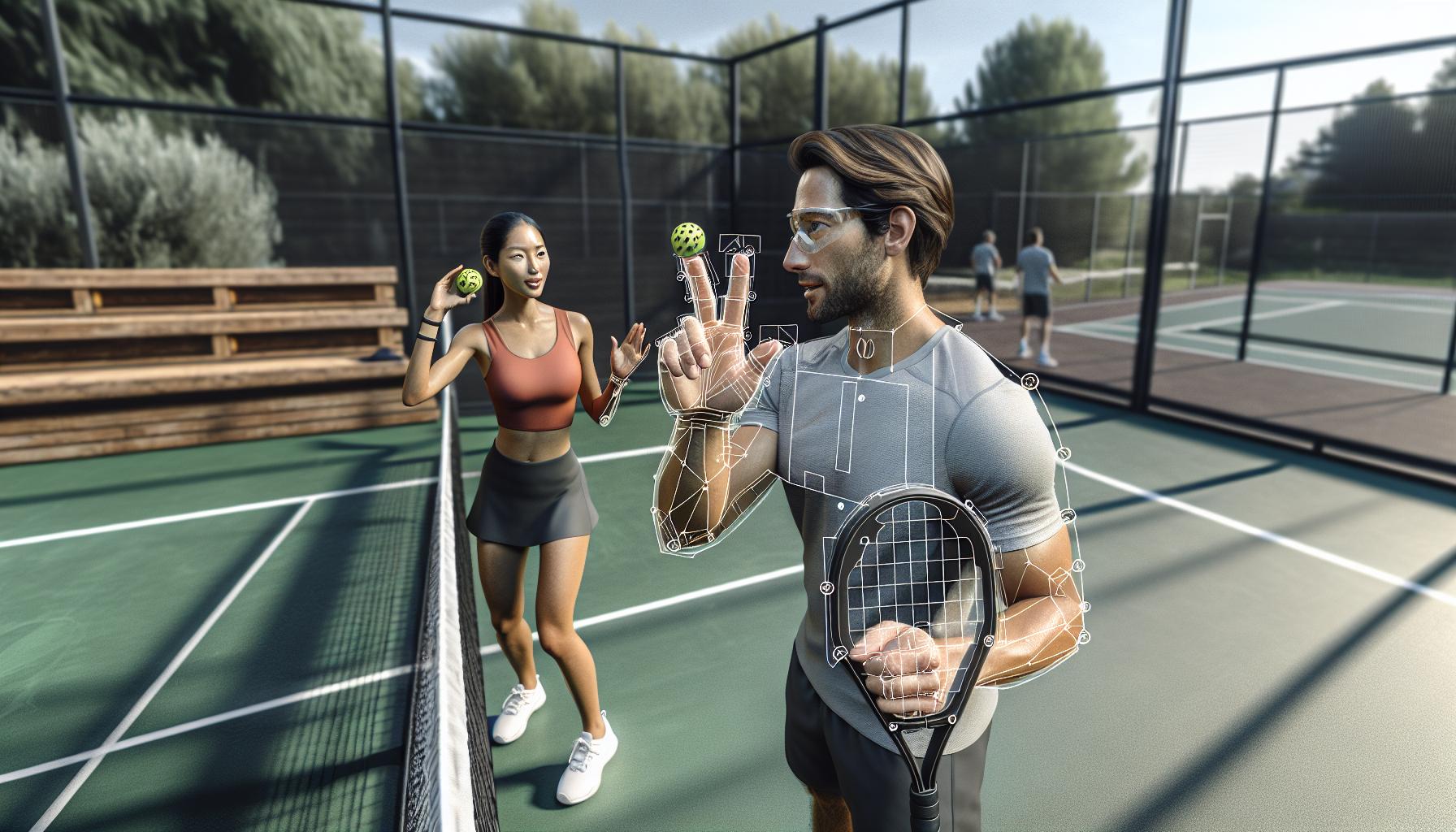
In the dynamic world of pickleball doubles, clear communication can be the linchpin of success. Teams that master the art of conveying information quickly, effectively, and supportively see considerable improvements in their gameplay. The strategies outlined below aim to bolster this crucial aspect of the game, focusing on both verbal and non-verbal methods.
Verbal Communication Techniques
Even amidst the heat of the game, there’s a significant role for verbal cues. They should be short, precise, and easy to understand. Phrases like “yours,” “mine,” “leave it,” or “I got it” can make a marked difference in team performance. Here are a few tips for refining verbal communication:
- Pre-define signals: Before stepping onto the court, partners should agree on specific words or phrases for common situations. This pre-game strategy ensures that during the match, each player instantly recognizes the calls.
- Speak up: The environment during a pickleball match can be noisy. It’s vital to project one’s voice clearly and assertively to ensure the partner hears the call.
- Positive reinforcement: Incorporating words of encouragement or quick positive feedback after a play can boost morale and keep the energy positive.
Non-Verbal Communication Tactics
Often, the most powerful form of communication doesn’t involve words at all. Non-verbal cues, such as gestures, eye contact, and body language, play a substantial role in effective teamwork on the pickleball court. Here’s how teams can leverage these silent signals:
- Develop a set of gestures: Before the game, partners can establish simple hand signals or motions to indicate strategies or maneuvers, enabling silent communication in noise-filled situations.
- Maintain eye contact: Regular eye contact keeps partners aligned on the game’s flow and can convey confidence and reassurance.
- Read body language: Observing a partner’s body language can offer insights into their next move or state of mind, allowing for real-time strategic adjustments.
Practice Together
Improving communication is not just about talking more or developing signals; it’s about building an intuitive understanding. By practicing together regularly, teams learn to anticipate each other’s moves, understand their partner’s gameplay style, and become more attuned to each other’s non-verbal cues. This harmony cannot be underestimated—it’s what makes teams seem to move and think as one.
Anticipating Moves and Supporting Each Other under Pressure

In the dynamic landscape of pickleball doubles, the ability to anticipate a partner’s moves distinguishes good teams from great ones. This requires a deep understanding of each other’s playing style and a keen sense of observation. By watching their partner’s positioning and body language, players can predict whether they’ll go for a power shot or a soft dink. This tacit understanding allows them to position themselves appropriately, either by moving forward to cover the net or staying back to defend against a potential return.
Anticipation, however, isn’t just about predicting shots. It’s also about sensing when your partner is under pressure and stepping in to offer support. Pressure situations in a game can stem from a variety of sources, whether it’s a tough opponent, a critical point in the match, or even external factors such as noise and weather conditions. Teams that excel under pressure have one thing in common: they know how to support each other. This can manifest in different ways, from a simple encouraging shout across the court to taking a more active role in the game by making aggressive plays to relieve the pressure on their partner.
Communication plays a pivotal role in supporting each other, especially during high-pressure moments. Verbal cues become even more critical, with partners using specific phrases or words that have been agreed upon beforehand. These cues can signal a change in strategy or simply serve to boost morale. For example, a quick “You got this!” can do wonders for a player’s confidence. Similarly, non-verbal communication, such as a thumbs up or a nod, can convey a sense of belief in each other’s abilities, strengthening the team’s resolve to push through challenging moments.
Practicing under simulated pressure scenarios is a strategy some teams employ to enhance their anticipatory skills and support mechanisms. By creating situations in practice that mimic the stress and pressure of real matches, teams can develop a resilience that translates well into actual competition. During these practice sessions, partners work on recognizing cues from each other that indicate stress or pressure and experiment with different ways to offer support, be it through strategic gameplay changes or motivational communication.
Elevating Your Doubles Play with Enhanced Communication

When pickleball doubles teams focus on enhancing their communication, they’re not just improving their ability to call shots; they’re elevating their entire gameplay. Enhanced communication starts with the basics but expands into understanding the subtleties of your partner’s play style, energy levels, and even mood on the court. This deeper level of connection can transform good teams into unstoppable forces.
Building a Strong Foundation
The cornerstone of elevated doubles play lies in building a strong foundation of communication. This begins with open dialogue about each player’s strengths and weaknesses. Knowing what your partner excels in allows you to strategize more effectively, playing to your collective strengths. Similarly, understanding weaknesses offers a blueprint for improvement and adjustment. This process isn’t a one-time conversation; it’s an ongoing dialogue that evolves as you grow as a team.
On-Court Communication Techniques
Effective on-court communication in pickleball involves a mixture of verbal cues and non-verbal signals. Teams should develop a set of pre-defined signals that can convey messages quickly and discreetly. For instance, a hand signal could indicate a switch in positioning or a strategic serve. Beyond signals, the tone of voice and choice of words play a crucial role. Positive reinforcement and concise, clear instructions enhance teamwork and morale.
- Verbal Cues: Calling balls in or out, indicating who should take the shot.
- Non-Verbal Signals: Hand gestures for strategic moves, facial expressions to convey confidence or caution.
Anticipating and Adapting
Another dimension of communication is the ability to anticipate your partner’s moves and adapt your strategy accordingly. This skill is honed through practice and attentiveness to non-verbal cues such as body positioning and eye movement. Successful anticipation leads to a fluid, dynamic play style where partners seamlessly complement each other’s actions on the court.
Embrace Challenge as an Opportunity
Teams often face challenges in maintaining effective communication, especially under pressure. Noise, stress, and fatigue can disrupt even the best-laid communication plans. Viewing these challenges as opportunities for growth is essential. Practicing in environments that simulate the distractions and pressures of real matches can prepare teams to maintain their composure and communication effectiveness when it counts the most.
- Practice under simulated pressure scenarios.
- Use challenges as teachable moments to refine communication strategies.
Conclusion
Mastering communication in pickleball doubles is a game-changer. It’s not just about the signals or the calls during the game; it’s about building a deep connection with your partner that transcends words. By embracing open dialogues about strategies and weaknesses, adopting pre-game rituals, and practicing under pressure, teams can significantly enhance their cohesion and performance. Remember, it’s the unspoken understanding and the shared belief in each other’s abilities that often lead to victory. So, keep talking, keep practicing, and most importantly, keep supporting each other. That’s the true essence of a winning doubles team in pickleball.

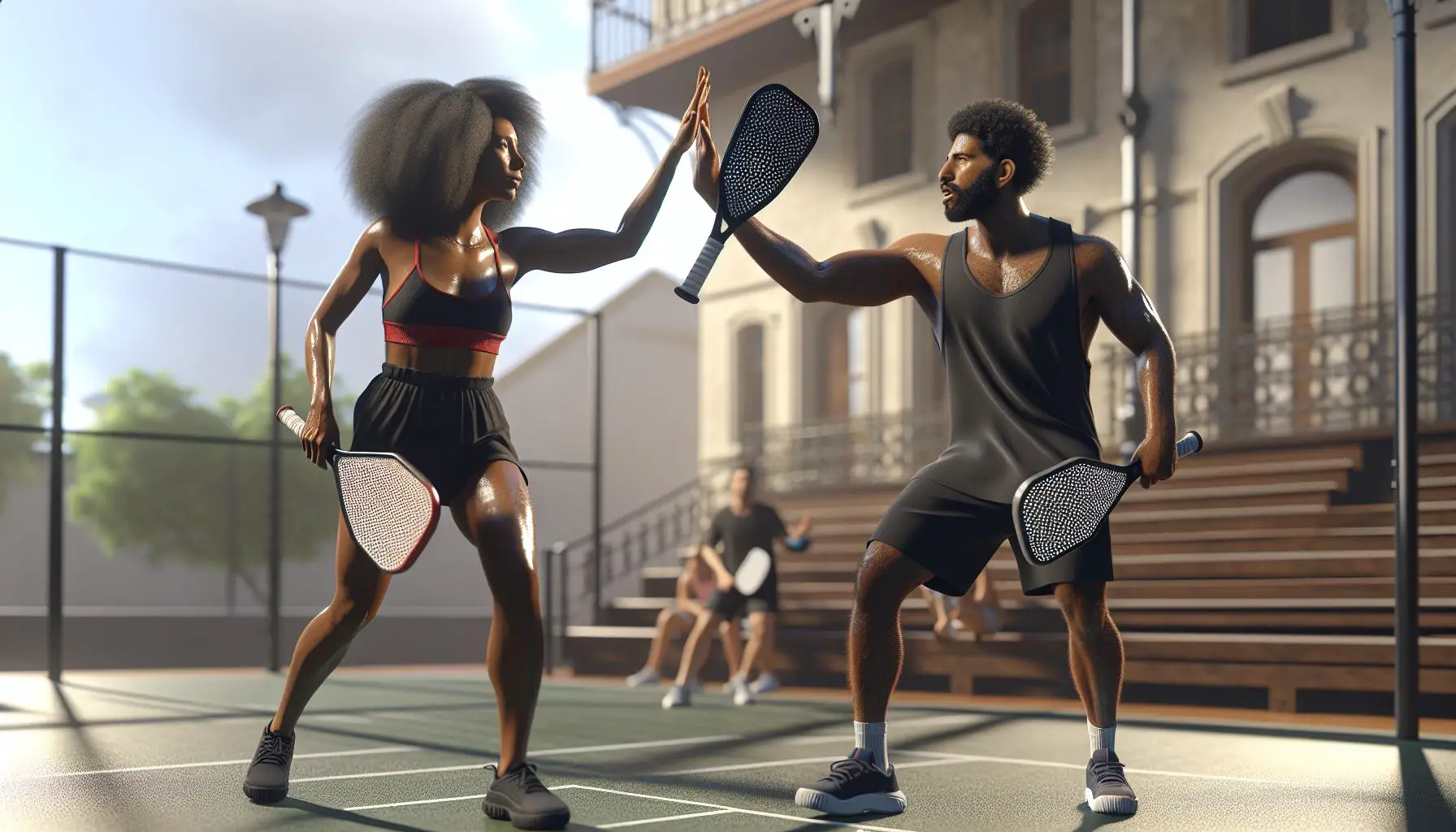






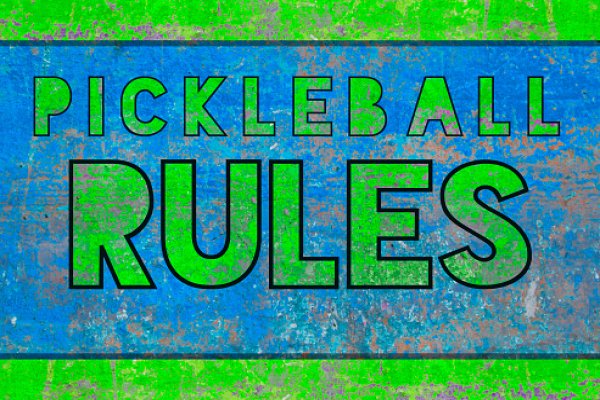
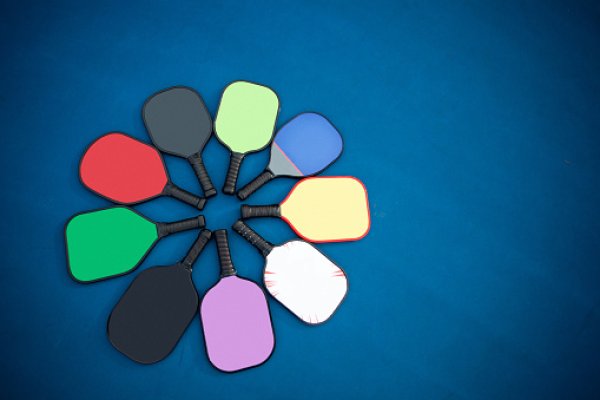
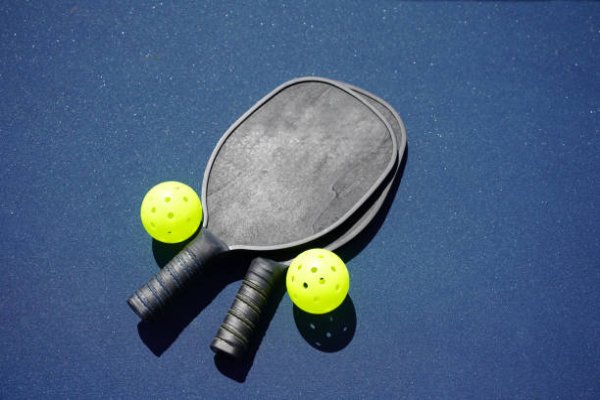
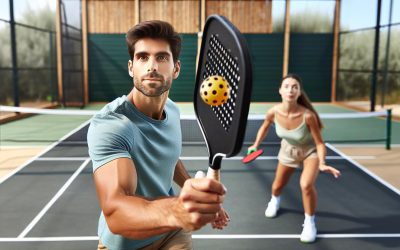


0 Comments